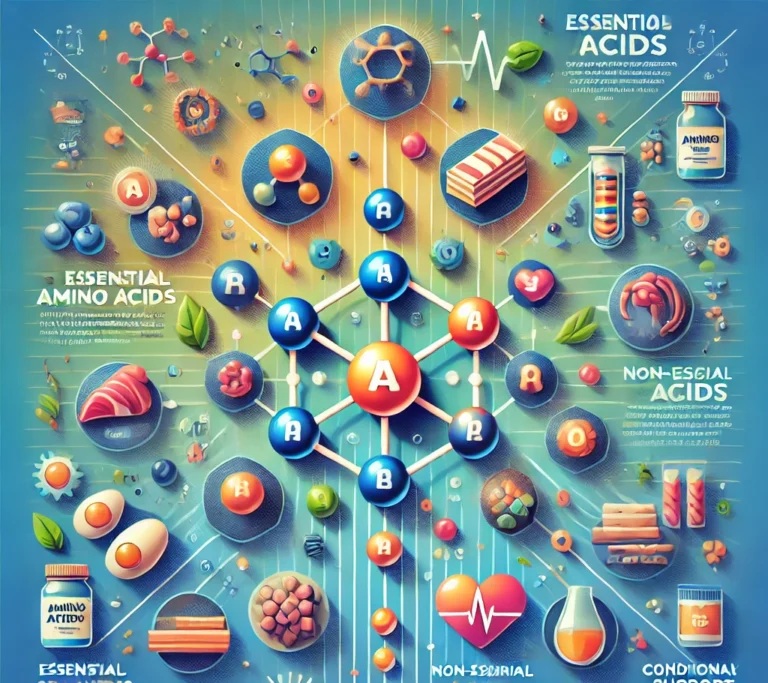
Introduction to Amino Acids
Defining Amino Acids
Amino acids are the building blocks of life. These organic Doctorhub360.com Amino Acids compounds combine to form proteins, which are vital for almost every function in the body. Think of them as the Lego pieces that construct your body’s tissues, hormones, and enzymes.
Role in the Human Body
Amino acids play multiple roles, from repairing tissues to producing energy. They’re essential for growth, development, and maintaining overall health.
Categories of Amino Acids
Essential Amino Acids
Your body can’t produce essential amino acids, so you need to get them from your diet. There are nine essential amino acids, including leucine, valine, and lysine.
Non-Essential Amino Acids
Non-essential amino acids are just as important, but your body can produce them on its own. Examples include alanine and glutamine.
Conditional Amino Acids
These are needed during specific conditions like illness or stress. Examples are arginine and cysteine.
Structure and Function of Amino Acids
The Basic Structure
Each amino acid has a central carbon atom, an amino group, a carboxyl group, and a unique side chain. This structure determines its specific role in the body.
Functions in the Body
Protein Synthesis
Amino acids are essential for building proteins, which are critical for muscles, skin, and organs.
Enzymatic Reactions
Many enzymes are proteins that rely on amino acids for their structure and function.
Energy Production
When your body lacks carbohydrates or fats, it can use amino acids as an energy source.
Dietary Sources of Amino Acids
Protein-Rich Foods
Animal-Based Sources
Foods like meat, eggs, and dairy are rich in essential amino acids.
Plant-Based Sources
Beans, lentils, tofu, and quinoa are excellent plant-based options for amino acids.
Supplements for Amino Acids
Protein powders and amino acid tablets can fill dietary gaps, especially for athletes or vegetarians.
Health Benefits of Amino Acids
Muscle Growth and Repair
Branched-chain amino acids (BCAAs) like leucine are crucial for muscle recovery and growth, especially after exercise.
Immune System Support
Amino acids like glutamine play a key role in strengthening your immune system.
Brain Function and Mental Health
Tryptophan, an amino acid, helps produce serotonin, which impacts mood and sleep.
Amino Acids in Medical Science
Role in Chronic Diseases
Amino acids are being studied for their role in managing conditions like diabetes and cardiovascular diseases.
Use in Sports Medicine
Athletes often use amino acid supplements to enhance performance and speed up recovery.
Amino Acids and Aging
Some amino acids can help combat muscle loss and support healthy aging.
How to Balance Amino Acids in Your Diet
Identifying Deficiencies
Signs of amino acid deficiency include fatigue, muscle loss, and weakened immunity.
Combining Food Sources
Pairing foods like beans with rice ensures a complete amino acid profile.
When to Consider Supplements
If dietary intake is insufficient, supplements can help meet your amino acid needs.
FAQs About Amino Acids
Q1: Can amino acids improve athletic performance?
Yes, especially BCAAs, which help in muscle recovery and reduce exercise fatigue.
Q2: Are amino acid supplements safe?
Generally, yes, but consult a healthcare provider for specific needs.
Q3: How do vegetarians get essential amino acids?
By combining foods like legumes, grains, and seeds to form complete proteins.
Q4: Can amino acids boost mental health?
Yes, tryptophan and tyrosine are linked to mood and brain function.
Q5: What happens if I consume too many amino acids?
Excess intake might strain the kidneys or lead to imbalances, so moderation is key.